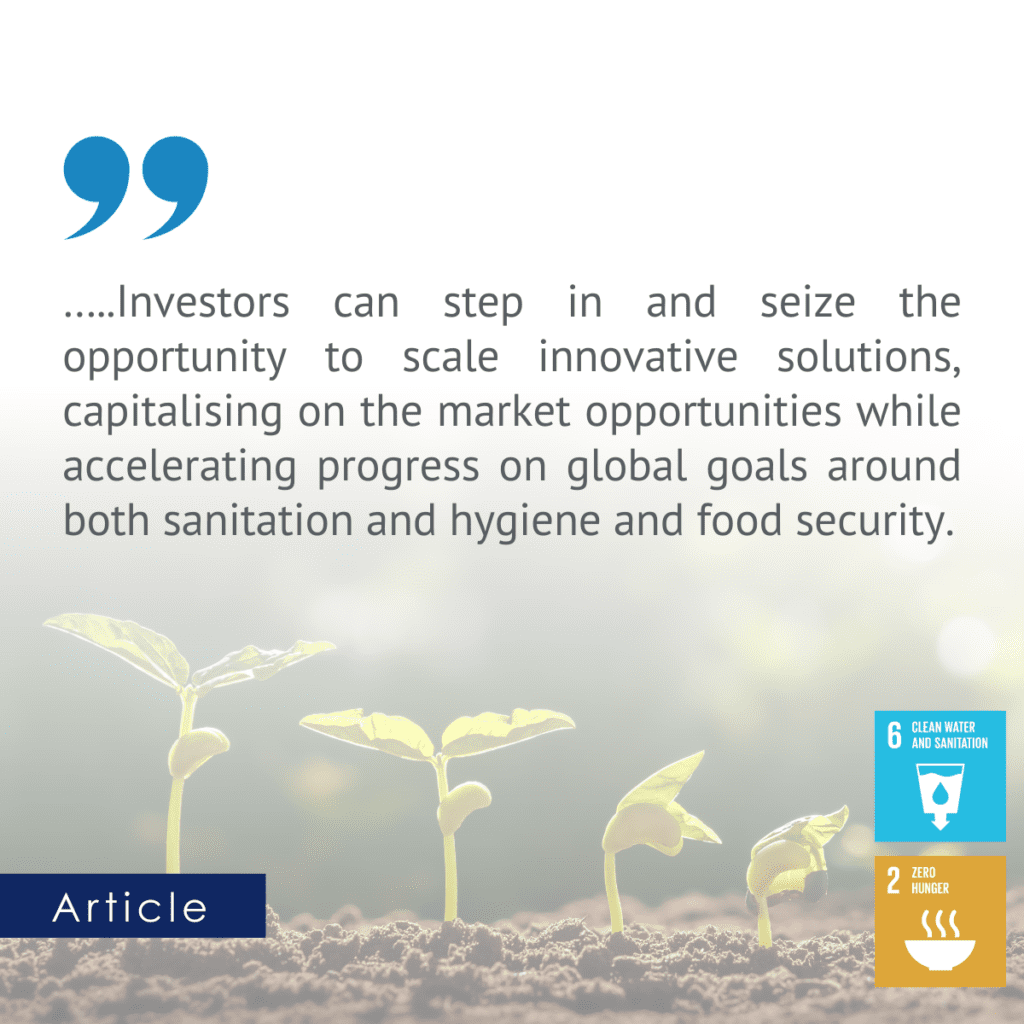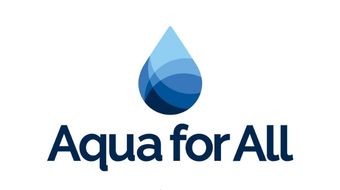According to FAO, 90% of the earth’s topsoil is at risk by 2050.[i] Our growing population is rapidly depleting the earth’s nutrients through the use of chemicals and unsustainable farming.[ii] When compounded with climate change (according to UNEP 90% of natural disasters are experienced through water) – our food system is crumbling.[iii]
And yet, around the world each day, the nutrients, organic matter and water that our soil desperately needs is being dumped into waterways and landfills rather than treated and returned to the soil.
Sanitation and our food system are intrinsically linked – one could argue that they are two parts of one system. Safely treated human waste unlocks several benefits such as recovery and repurpose of water, generation of eco-friendly fuel through biogas, and creation of compost or soil enhancers that can replenish the earth’s topsoil.
Notably, improving faecal sludge management also decreases GHG emissions linked to sanitation and composting boosts carbon storage and prevents methane release.

At the Toilet Board Coalition, we accelerate business solutions to the sanitation crisis. We work with all sizes of the private sector to understand the challenges they face in bringing innovative solutions to the market and then leverage those insights to accelerate progress on global goals.
Based on the Toilet Board Coalition estimates, the overall Sanitation Economy market size for Asia (particularly in India, Nepal, Bangladesh, Sri Lanka, Cambodia, Indonesia and Philippines) is approximately USD 494 billion with preliminary estimates of livelihood opportunities in urban sanitation to the tune of 87 million, by 2030. Resource recovery is a part of this overall market estimate and in India alone it is about USD 2.5 billion from the sale of compost derived from treated faecal waste, by 2030.[iv]
There is ample evidence on the use of bio-solids (solid organic matter recovered from treatment of wastewater from STPs or FSTPs) in replenishing the degraded quality of soil thereby impacting the overall agricultural productivity. However, in most of the world and particularly the global south, the norms for use of bio-solids are either missing or are loosely defined. This poses a challenge for treatment operators as they’re unable to sell products in formal markets or develop competitive pricing structures – stifling market development.
In places where such norms exist, enforcement can be a challenge because there may be limited pathology labs equipped to test the products and the tests could be prohibitively expensive further de-incentivising the formalisation of this market.
With enabling policies that encourage private sector players (in particular small and medium enterprises (SMEs)), market opportunities as highlighted above are opened for not only the re-use of biosolids but also testing and supply chains – generating significant livelihood opportunities.
We have hotspots of innovation where SMEs and large utilities are stepping into this space. As governments across the world race to provide access to toilets, policy decisions on the re-use of bio-solids can have compelling impacts on the financial viability of their local sanitation economy and their food security.
In these hotspots where the market is established and ripe for scale, investors can step in and seize the opportunity to scale these solutions, capitalising on the market opportunities while accelerating progress on global goals around both sanitation and hygiene and food security.
[i] FAO warns 90 per cent of Earth’s topsoil at risk by 2050. (2022, 29 juillet). UN News. https://news.un.org/en/story/2022/07/1123462
[ii] FAO warns 90 per cent of Earth’s topsoil at risk by 2050. (2022b, juillet 29). UN News. https://news.un.org/en/story/2022/07/1123462
[iii] World Water Day 2020 : How water and climate change are inextricably linked and How UNECE instruments help | UNECE. (2020, 21 mars). https://unece.org/environment/press/world-water-day-2020-how-water-and-climate-change-are-inextricably-linked-and-how
[iv] Toilet Board Coalition.Sanitation-Economy-Markets-Indiahttps://www.toiletboard.org/wp-content/uploads/2021/03/2020-Sanitation-Economy-Markets-India.pdf

Author: Sunil Agarwal, Programme & Partnerships Manager at the Toilet Board Coalition






